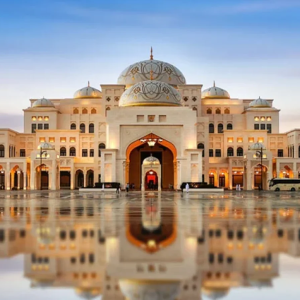Retail shop for rent in Dubai is one of the most searched topics by entrepreneurs, startups, and global brands aiming to establish a presence in the city. Dubai, known as a global business hub, offers unmatched opportunities for retailers thanks to its booming economy, diverse population, and strong tourism industry. Whether you are launching a new brand, expanding your business, or relocating, renting a retail shop in Dubai can be the perfect investment move.
This guide will take you through everything you need to know about renting retail shops in Dubai—from prime locations and price trends to legal requirements and business tips.
Why Choose a Retail Shop for Rent in Dubai?
Dubai has earned its reputation as a retail paradise. From luxury boutiques and global franchises to local brands, the city welcomes all kinds of businesses. Here’s why it stands out:

- Strategic location: Dubai connects Asia, Europe, and Africa, making it an international retail hub.
- High consumer spending: The city has one of the highest purchasing powers in the Middle East.
- Tourism growth: Millions of tourists visit Dubai each year, boosting retail demand.
- Diverse audience: Dubai’s population consists of more than 200 nationalities, offering a wide customer base.
- Business-friendly policies: Free zones, tax incentives, and simplified regulations attract retailers worldwide.
These factors make finding a retail shop for rent in Dubai not just a necessity but also a smart long-term business decision.
Popular Areas for Retail Shop for Rent in Dubai
Choosing the right location is key to retail success. Dubai offers a wide range of commercial districts and shopping destinations.

1. Downtown Dubai
- Home to Dubai Mall and Burj Khalifa.
- High tourist traffic and premium retail space.
- Ideal for luxury brands, fashion boutiques, and flagship stores.
2. Dubai Marina and Jumeirah Beach Residence (JBR)
- Popular with residents and tourists.
- Perfect for cafes, restaurants, and lifestyle brands.
- Rental prices vary depending on shop size and visibility.
3. Business Bay
- A commercial hub with thousands of offices.
- Great for convenience stores, gyms, and dining spots.
- Affordable compared to Downtown Dubai.
4. Deira and Bur Dubai
- Historic trading districts.
- Lower rental costs and heavy footfall.
- Popular for electronics, textiles, and traditional businesses.
5. Jumeirah and Al Wasl
- Residential neighborhoods with high-income families.
- Ideal for boutique shops, salons, and specialty services.
6. Shopping Malls
- Mall of the Emirates, Ibn Battuta Mall, and City Centre Deira.
- High visibility and guaranteed customer flow.
- Premium rent but excellent for established brands.
Average Rent for Retail Shops in Dubai
The cost of renting a retail shop in Dubai depends on factors like size, location, visibility, and amenities.
- Small shops in community areas: AED 40,000 – AED 100,000 per year.
- Medium-sized retail spaces in busy districts: AED 150,000 – AED 400,000 per year.
- Shops in premium malls or Downtown Dubai: AED 500,000 – AED 1,000,000+ per year.
Rental contracts are usually for 1 year, renewable annually. Landlords may also request a security deposit and multiple rent cheques.
Legal Requirements for Renting a Retail Shop in Dubai
Before renting a retail shop in Dubai, businesses must meet certain legal obligations:
- Trade License: You must have a valid commercial trade license issued by the Dubai Economic Department (DED) or a free zone authority.
- Ejari Registration: The rental contract must be registered with Ejari, Dubai’s tenancy registration system.
- No Objection Certificate (NOC): Sometimes required if you are renting within certain malls or free zones.
- Fit-out Approvals: If you plan to modify the shop, you may need permissions from the landlord and Dubai Municipality.
Working with a real estate agent or property consultant can help you navigate these processes smoothly.

Tips for Choosing the Right Retail Shop for Rent in Dubai
When searching for a retail shop for rent in Dubai, keep these points in mind:
- Location is everything: High-traffic areas cost more but ensure better visibility.
- Know your audience: Choose a neighborhood where your target customers live or visit.
- Check the layout: Ensure the shop fits your business operations.
- Parking and accessibility: Shops with easy access and parking attract more customers.
- Future growth: Pick an area with development potential to benefit from rising demand.
Benefits of Renting Instead of Buying
Many business owners prefer renting instead of buying property in Dubai. Here’s why:
- Lower upfront costs – No need for huge investments.
- Flexibility – Easier to upgrade, downsize, or change locations.
- Trial and error – Allows testing the market before committing long-term.
- No maintenance stress – In many cases, landlords handle major repairs.
Retail Trends in Dubai
Dubai’s retail industry is constantly evolving. Some key trends include:
- E-commerce integration: Many shops are blending physical stores with online platforms.
- Experience-driven retail: Customers expect unique experiences, not just products.
- Sustainability focus: Eco-friendly stores and sustainable products are gaining popularity.
- Flexible retail spaces: Short-term leases and pop-up stores are becoming more common.
Businesses that adapt to these trends are more likely to succeed in Dubai’s competitive retail market.
Final Thoughts on Retail Shop for Rent in Dubai
Finding the right retail shop for rent in Dubai is one of the most important steps for setting up a successful business. With its global reputation, strong economy, and high consumer demand, Dubai offers excellent opportunities for retailers.
Whether you are opening a small boutique in Jumeirah, a convenience store in Business Bay, or a luxury outlet in Downtown Dubai, the city provides the perfect platform to grow your brand.
By carefully selecting the location, understanding rental costs, and meeting legal requirements, you can secure a retail space that fits your business goals and budget.
Do follow UAE Stories on Instagram
Read Next – Why Iraq Electricity Use Still Relies on Imports












